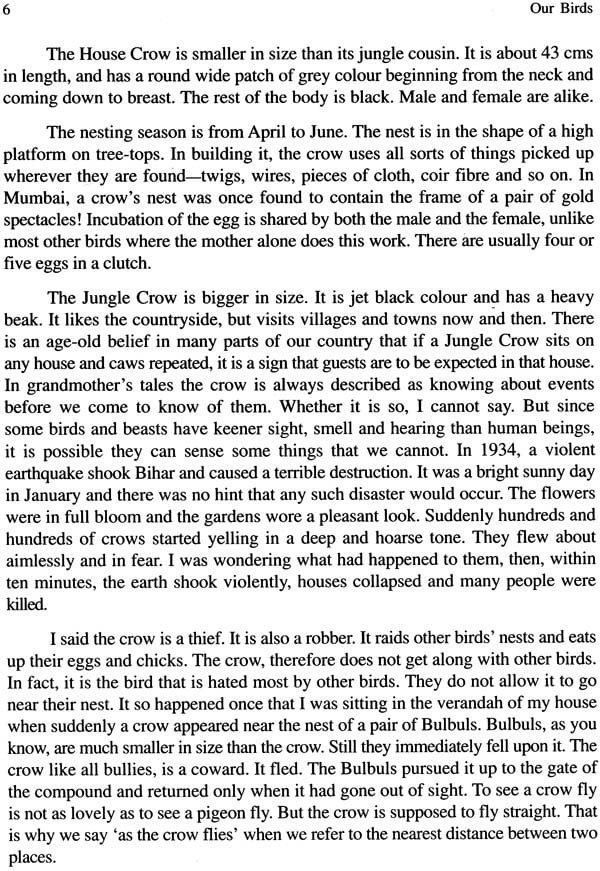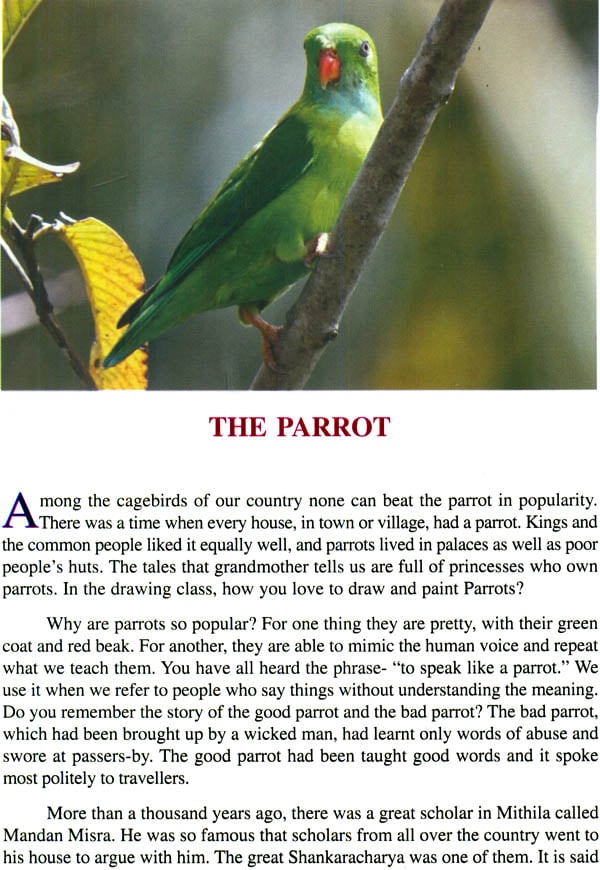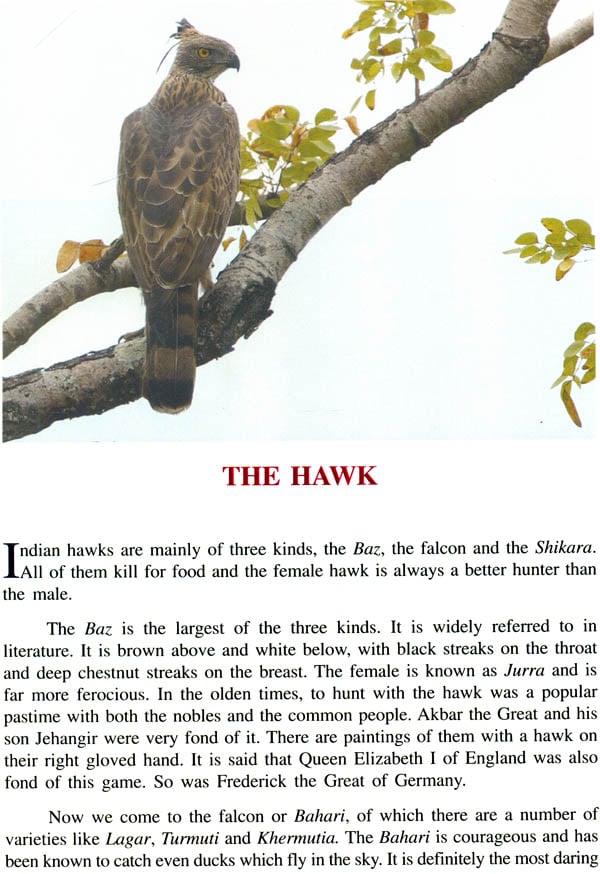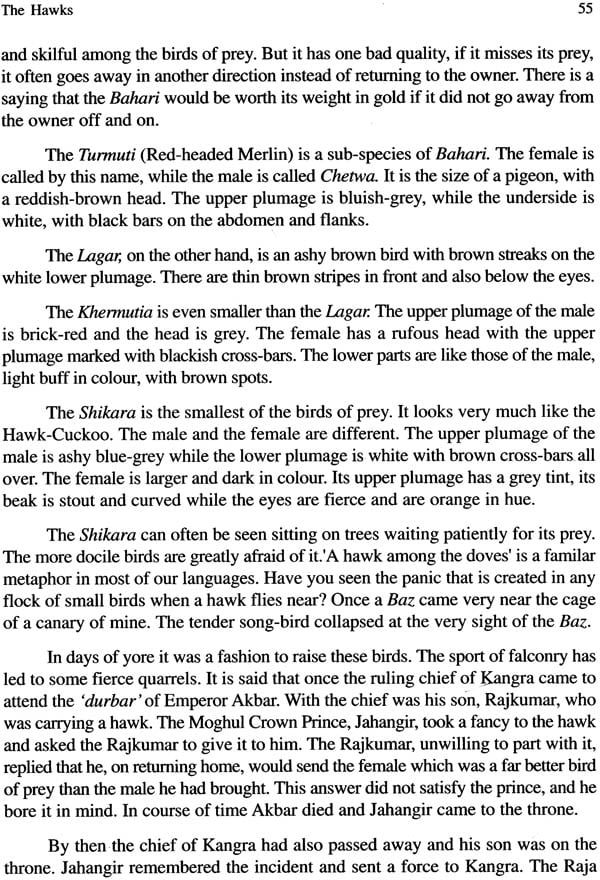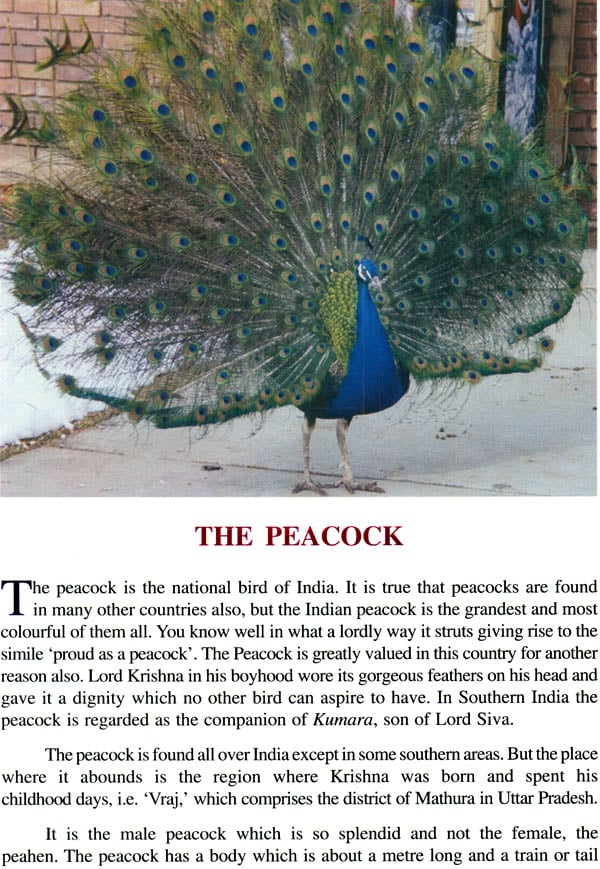
Our Birds
Book Specification
| Item Code: | NAL453 |
| Author: | Rajeshvar Prasad Narain Sinha |
| Publisher: | Publications Division, Government of India |
| Language: | English |
| Edition: | 2012 |
| ISBN: | 9788123017471 |
| Pages: | 86 (Throughout Color Illustrations) |
| Cover: | Paperback |
| Other Details | 9.5 inch x 7.0 inch |
| Weight | 230 gm |
Book Description
Indian birds are of many types and species and are found throughout the sub-continent. The Indian sub-continent is home to over 1200 species of bird. These species belong to 16 groups called ‘Orders’, which are further divided into Families’, Sub-Families’ and ‘Genera’.
This book, ‘Our Birds’ is an attempt at familiarzing the young readers with 20 most common winged friends, who inhabit our surroundings and enrich the nature. The author with his simple language almost casts a spell on his readers who are compelled to read the whole book in one sitting.
More than 23,000 species of birds have been identified in the world. Many thousands of bird species can be seen in our country, and there still remain many species to be identified. This book gives an account of twenty of the most familiar birds, birds we which we see and hear every day around us.
The late Indira Gandhi, whose interest in the welfare of children is well known, took the trouble of Foreword for this book. I am immensely grateful to her.
I was so glad that Shri Rajeshvar Prased Narain Sinha has followed Chacha Nehru’s advice and brought out a special bird book for children. It fulfils a long-felt need.
Like most Indians I took birds for granted until my father sent me Dr. Salim Ali’s delightful book from Dehradun jail and opened my eyes to an entirely new world. Only then, did I realise how much I had been missing.
Bird-wathching is one of the most absorbing and rewarding activities. First, one learns to distinguish the different species, their nesting habits and their calls. Then gradually one realises that birds are little individuals, each with his own characteristics.
Modern civilisation owes a debt to birds for they have been the models for our own early attempts at flying.
We are fortunate still to be able to live amongst birds even in our cities. In other countries you will have to go deep into the countryside to see any. Let our children learn to recognise them and to be friends with them.
I hope this little book will arouse the interest of children in birds and that they will derive much pleasure from it.
| The Koel | 1 |
| The Crow | 5 |
| The Crow Pheasnt | 8 |
| The Black Drongo or King Crow | 10 |
| The Hawk Cuckoo | 13 |
| The Jungle Babblers or Seven Sisters | 16 |
| The Bulbul | 23 |
| The Myna | 27 |
| The Parrot | 34 |
| The Pigeon | 38 |
| The Dove | 45 |
| The Kite | 50 |
| The Hawk | 54 |
| The Hoopoe | 57 |
| The Blue Jay | 59 |
| The Tree Pie | 61 |
| The Sparrow | 63 |
| The Owl | 66 |
| The Partridge | 72 |
| The Peacock | 74 |
| A Happy Hobby | 78 |

